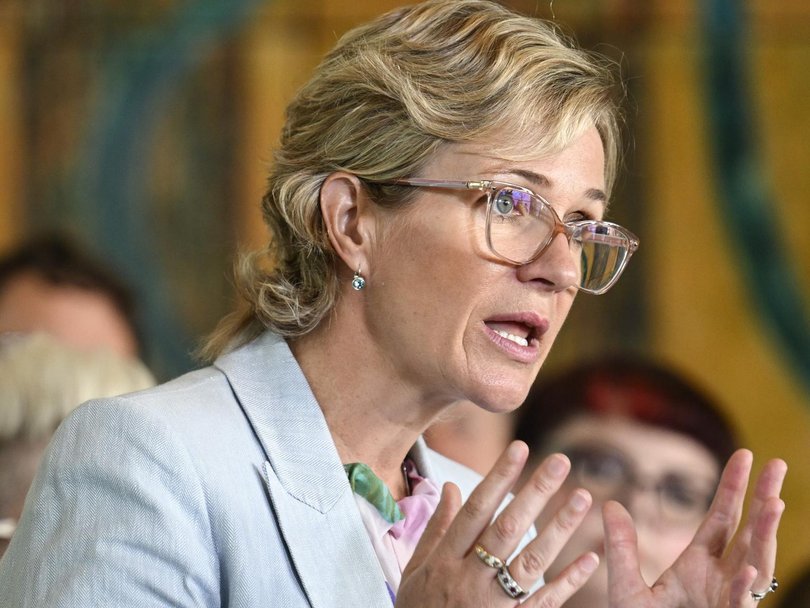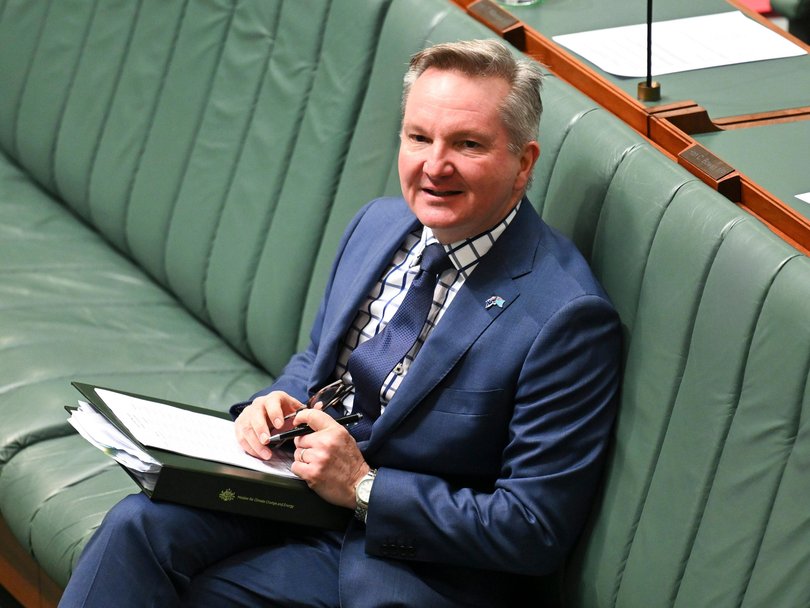Productivity reports find climate change is putting heat on housing as more properties uninsurable
The rising disaster bill from a wave of extreme weather events has put pressure on reform at key productivity talks this month.

The impact of climate change on the housing sector has come under the spotlight ahead of a major economic reform roundtable this month after the Productivity Commission urged the Government to boost risk management to mitigate rising costs.
“Boosting our resilience to climate perils has the potential to lower the costs of disaster recovery. Productivity benefits will also flow from a healthier population, and our quality of life will improve,” the Commission said in a new financial analysis of the net zero energy transition.
The study was the second of five major reports to inform a much-awaited productivity roundtable convened by Treasurer Jim Chalmers at the end of August to help accelerate economic growth.
Sign up to The Nightly's newsletters.
Get the first look at the digital newspaper, curated daily stories and breaking headlines delivered to your inbox.
By continuing you agree to our Terms and Privacy Policy.It suggested greater government intervention and the potential for “more broad-based carbon pricing” to hit climate targets, but also warned more steps were needed to counter climate-related risks regardless of future emissions reductions.
“Housing warrants specific policy attention,” the Commission said, calling on the Government to take the lead in creating a “publicly accessible database of all climate hazards” alongside “an outcomes‑based resilience rating system for housing and guidance on how to act.”
All levels of Government had an interest in making housing more resilient, it said.
“They should work together to agree on quantifiable goals for improving housing resilience over the coming decades, and targeted policies to achieve those goals.”
The recommendations also precede a separate meeting hosted by Climate Change and Energy Minister Chris Bowen in Sydney on Friday — one of 39 mini roundtables to prepare for the main event on August 19-21 to discuss the wider impact of environmental policy reform on productivity.

Climate Council CEO, Amanda McKenzie, who will attend Friday’s event, welcomed the Productivity Commission’s submission for showing that tackling climate change and pollution was the “cornerstone” of productivity.
“We often think about the environment as somehow being separate from the economy, whereas I think what underpins their analysis is that if you have a stable climate and a healthy environment that underpins a healthy economy,” she said.
An interactive “Climate Risk Map” released by the Council in April to inform the public about the threat of damage to properties found that over 2 million homes and businesses were at high or moderate risk from worsening extreme weather driving by climate pollution.
Further research by the Council points to disasters costing the Australian economy $2.2 billion in the first six months of 2025 and an estimated 80,000 properties becoming uninsurable since 1990 because of worsening climate risks.
Ms McKenzie said the public database suggested by the Commission would help guide property investments.
“There are little publicly available, accessible sources of information on climate risks and how to cope with climate risks, and many communities are on the front line and don’t necessarily know what to do,” she said.
“When people are buying homes, they don’t know what the risks are that they’re getting themselves into.”
Liz Hanna, Honorary Associate Professor at the ANU’s Fenner School of Environment and Society, said “adaptation and preparedness” needed to sink much deeper into the national consciousness.
“Just responding and responding and responding is pretty futile in many respects,” she said, adding that the aversion to the cost of resilience also had to change.
“It shouldn’t be viewed as a cost. It’s actually an investment. It’s going to be expensive, but the cost of preparation is dwarfed by the cost of rebuilding and disaster and all the disruption and dislocation.”
The need to better mitigate the economic impact of environmental catastrophe is gaining traction in the Federal parliament.

In her own proposal to the economic reform roundtable on the green energy revolution, independent MP Zali Steggall warns the economic and environmental costs of disasters will make a $73 billion dent in the economy every year by 2060, citing Deloitte Access Economics.
Ms Steggall called for a Federal program to offer eligible households and businesses up to $30,000 equivalent subsidy to lower their costs arising from climate change.
The Government is currently finalising its own National Climate Risk Assessment to feed into national priorities for climate adaptation and better resilience, including for infrastructure.
The Productivity Commission’s recommendations on housing were included in a broader report published at the weekend about how to achieve net zero emissions goals at the least cost.
“Australia needs consistent and comprehensive incentives to reduce emissions,” it said, urging Governments to “remove overlaps and ensure incentives are neutral towards which technologies can achieve reductions.”
It said the Safeguard Mechanism to reduce greenhouse gas emissions from the country’s largest industrial facilities should be expanded and called for new “technology-neutral” emissions reduction incentives for heavy vehicles.

While the Opposition was arguing internally about how big a handbrake to put on climate action, “we’re delivering in the national interest with a fairer, modern energy grid that unlocks jobs and prosperity for Australians,” he said.
More generally, the likelihood of stalled environmental protection laws becoming a key talking point in this month’s economic reform forum gained momentum after former Treasury boss Ken Henry raised the issue recently at the National Press Club.
Dr Henry, who will attend the roundtable, argued that overcoming environmental policy paralysis was vital to both boosting productivity as well as protecting nature.
The new Productivity Commission report backed this view, stating that “reforms to the Environment Protection and Biodiversity Conservation Act 1999 are pressing and overdue.”
But on Monday, Prime Minister Anthony Albanese downplayed the influence of the roundtable on advancing this issue.
“The Government will make decisions, and the roundtable isn’t a substitute for government decision-making,” he said.
Environment Minister Murray Watt was consulting closely with industry and environment groups, Mr Albanese said, adding that, “I’d like to see these issues advanced as soon as possible.”
Asked if Labor was considering calls to adopt a carbon price, the Prime Minister repeated the “government will make decisions as the government.”
“A whole range of people will put forward ideas over the next couple of weeks. That’s fine. We don’t intend to respond to each and every one of them,” he said.

